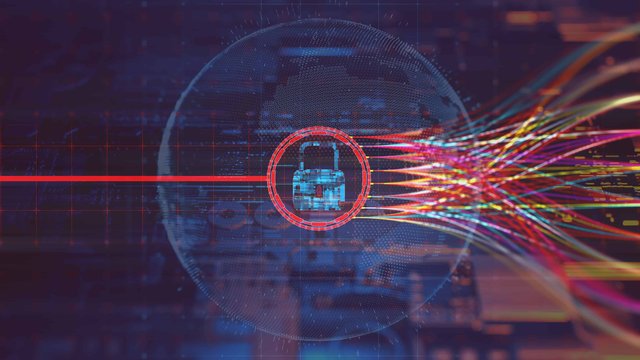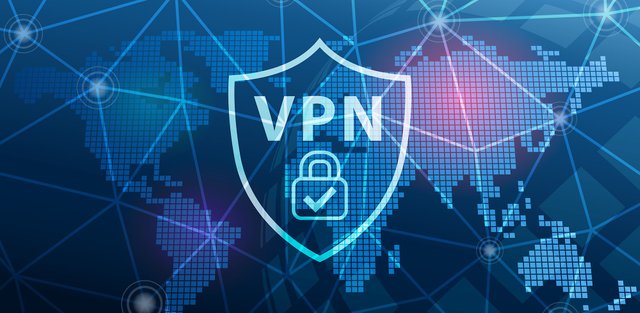What Is a VPN & How Does It Work?
What Is a VPN & How Does It Work?
A VPN (virtual private network) is one of the best tools for ensuring your internet privacy. A VPN encrypts your connection and keeps you hidden while surfing, shopping, and banking online. Keep reading for a full VPN definition, including how VPNs work and why you need one.
.jpg)
What is a VPN?
A virtual private network (VPN) is a secure, encrypted connection between two networks or between an individual user and a network. VPNs allow you to hide while surfing the web.

While VPNs were once novel tech solutions, they are now necessary tools. At the basic level, VPNs protect your privacy online so you cannot be targeted or discriminated against based on location.
If you’re still a bit unclear on what VPN means, you can try to visualize it. Imagine that the internet is a real highway, and we zip around it on motorcycles. We visit our favorite locations (websites), make purchases in shops, check our stock portfolio, read the news, play games, and more.
Sitting on a motorcycle, you’re completely visible. Anyone with a mind to do so can follow you along these digital highways, see who you are, and peek into your private life. To view your online activity, who you are, where you like to visit, and more, all anyone has to do is look. Worse, they can follow you home. You’re traceable.

Instead of riding on the wide open internet highway, you can use a private tunnel instead: a virtual private network. A VPN acts as your own personal tunnel that encircles you, masking you in anonymity and blocking anyone from seeing where you’re going or what you’re doing. To abandon the metaphor, a VPN encrypts your connection and hides your IP address.

What does a VPN hide?
VPNs work on the operating system level, so they reroute all your traffic through other servers. That means all of your online traffic, along with your physical location, stays hidden while you surf the web. When you access a site through a VPN server, the source of your connection is shown as one of the many VPN routers — called a proxy server — not your own. So the owners of the site, and anyone else trying to spy on you, cannot deduce who you are.
A VPN is the closest you can get to true anonymity online without using the Tor network, which bounces your connection around a widely distributed network of volunteer relays, basically keeping your web activity in constant motion so nobody can focus on it. VPNs do not use this (very slow) protocol, but they do offer sufficient — and essential — protection as you cruise through today’s deregulated and hacker-lined cyber highways.
When it comes to online privacy solutions, VPN, Tor, and web proxies are all options — but a VPN offers the best balance of comprehensive security and speed.
Whether you want to stay safe on public Wi-Fi, protect your online banking info, or disguise your location from content providers and advertisers, a VPN will keep you private.

How do VPNs work?
The Virtual Private Network was first developed by Microsoft in 1996 as a way for remote employees to securely access the company’s internal network. Once it doubled company productivity, other companies began to adopt the practice. Corporate VPNs that allow remote work are now a standard feature of the global business landscape.
Developers then realized that this secure “tunnel” could be utilized by average people who wanted to securely connect to the largest network on the planet: the world wide web. VPNs are now the cornerstone of online privacy in the consumer sector.
But what does a VPN do, exactly?
Instead of sending your internet traffic (e.g. your online searches, uploads, and downloads) directly to your Internet Service Provider (ISP), a VPN first routes your traffic through a VPN server. That way, when your data is finally transmitted to the internet, it appears to come from the VPN server, not your personal device.

Without a VPN, your IP address — a special number unique to your home network — is visible to the web. A VPN masks your IP address by acting as an intermediary and rerouting your traffic. It also adds encryption, or a tunnel around your identity, as you connect. The combination of the VPN server and the encryption tunnel blocks your ISP, governments, hackers, and anyone else from spying on you as you navigate the web.
Please join and start working for free and you will help me so too!
Cryptotab ------------ https://cryptotabbrowser.com/25369529
Boomining Doge ------- https://boomining.com/r/99557
Boomining Tron ------- https://tron.boomining.com/r/53423
Pi Network ----------- "rezocrypt" is my referral code
Contact with me
Telegram ------------- @cryptojacker (recommended)
Instagram ------------ https://www.instagram.com/rezocrypt/
Facebook ------------- https://www.facebook.com/profile.php?id=100070864692934
Donate if you can Thanks so muuuch!
Bitcoin -------- 1HLWP716sfhrHk8XzPGPzbjfo7WyRrGdXw
Ethereum ------- 0x6460B606f51Db5311dDfb1aB4F06E29C3e30F5DC
Monero --------- 465a1gQS7JuSbTWBZePvbJhDtzJpF8g6RRhSXiqdBJ6qfLjXxd3ea1PeaiCsr9Psz18ncqhRCGb2oXYdEU5N1ggRRycYJ52
Cardano -------- addr1qxh9vc9p2y9wextcnz7jkv23s6xsn3k97vydr7nkkpvf8s6crua4kwe6ux7jhsq2uzu4qc0qk32xvevwwulevpl0rq2svj06ee